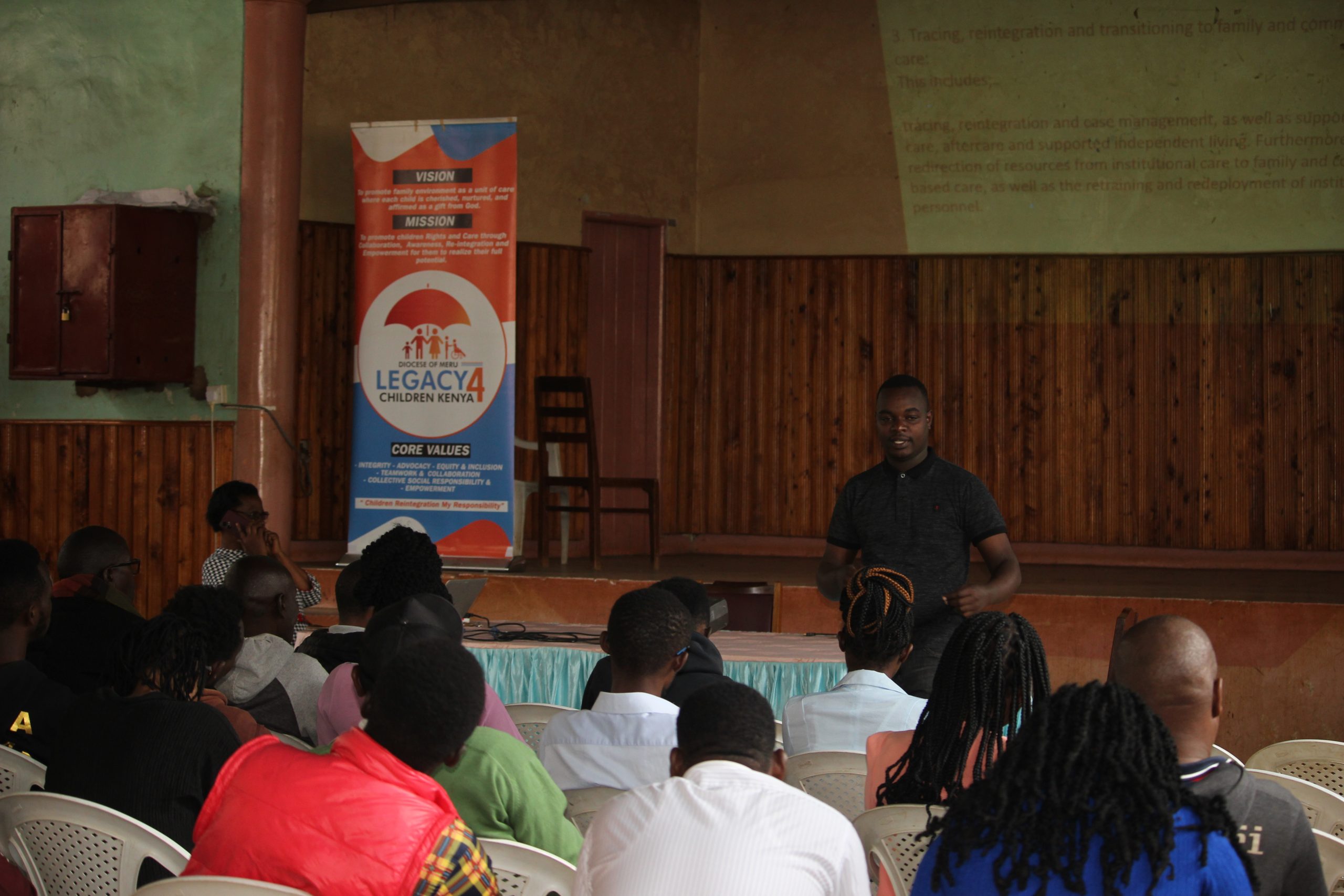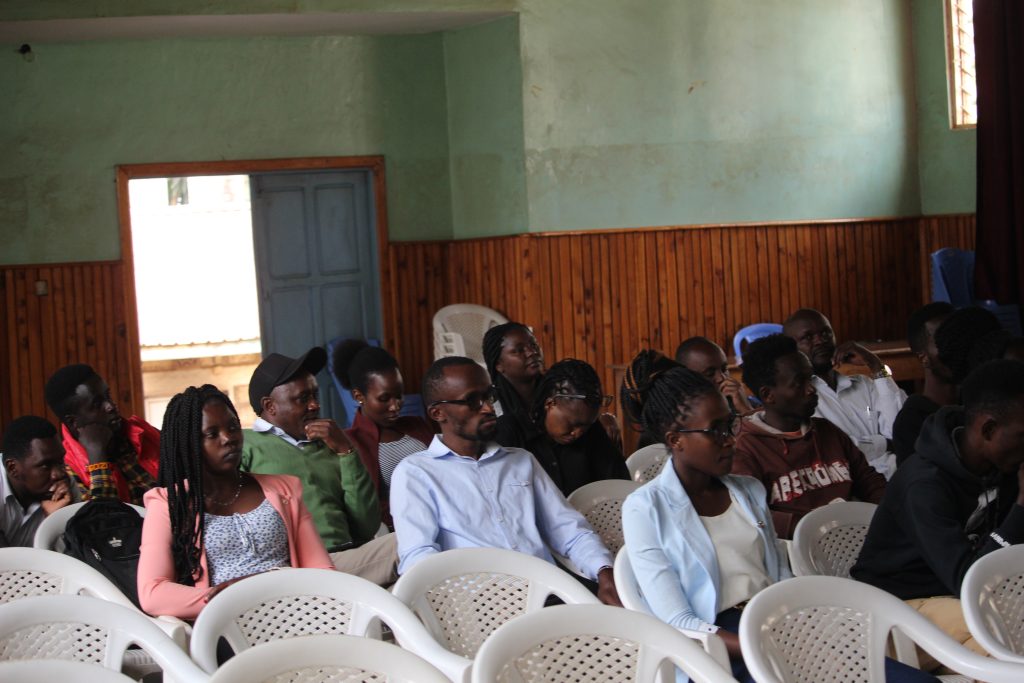Meru Journalists trained on advocacy for vulnerable children’s reintegration into families and community

By Harun Mugambi
The Diocese of Meru, on June 26, 2024, conducted a comprehensive training session for journalists on National care reform for children under the theme “Children Reintegration: My Responsibility.”
National care reform for children in Kenya is in alignment with the constitution and the Children Act of 2022 which replaced the Children Act of 2001. The National Care Reform Strategy for Children in Kenya, supported by Legacy for Children (L4C) aims to transform the childcare system by promoting family and community-based care models over children’s homes.
The government aims to phase out private children’s homes and orphanages, as stipulated by the 2022 Children Act.
The event, held at St. Joseph’s Cathedral Hall, brought together various key Child Welfare stakeholders who educated journalists on championing the reintegration of children in need of care and protection back to their kinship and community.
Tracy Kendi, an officer from the Directorate of Children Services (DCS), underscored the government’s commitment to rescuing and supporting vulnerable children.
“The children can be integrated into Inua Jamii programs via registration to ensure they get the cash transfer set aside for orphans and vulnerable children,” she stated.
Kendi highlighted the pillars of national care reform, which include preventing separation and strengthening families, providing alternative care, and reintegrating resources from institutional care to family and community-based care.
Sarah Miriti, an officer from the children’s department in the Diocese of Meru, stressed the importance of thorough vetting for foster parents.
“We vet foster parents and ensure they understand what they are supposed to do and how to take care of the child. We don’t give randomly; we must assess the home the child is going to stay,” Miriti said.
Foster Parents are individuals who provide temporary care for children who are not their legal children.
She added, “We want them to get attached to the community at an early age and not get isolated in the children’s homes.”
Miriti also called on journalists to act as ambassadors of this strategy by partnering with the Diocese of Meru to raise public awareness.
“We, as the church, have seen it wise to help the government sensitize the public on this initiative,” she said, urging journalists to play a pivotal role in this advocacy.
Allan Mutwiri, a social worker from the children’s department in the Diocese of Meru, elaborated on the various aspects upheld by the National Care Reform (NCR), including prevention of separation, family strengthening, and alternative care options such as kinship care, Kafaala (an Islamic system), foster care, guardianship, adoption, and traditional approaches to care.
“Getting the Christian children’s institutions (CCIs), community, and families to help the children from these institutions is the way to go to achieve our goal by 2032,” Mutwiri remarked.
He acknowledged the challenges of caring for children with disabilities and siblings but noted a growing willingness among people to support these vulnerable groups.
Mutwiri also emphasized the alignment of the National Care Reform Strategy with the Constitution and the Children Act of 2022.
“To promote a family environment as a unit of care where each child is cherished, nurtured, and affirmed as a gift from God,” he stated, outlining the mission and vision of the reform strategy.
Sarah Miriti, also a social worker from the children’s department in the Diocese of Meru, noted that some children’s homes have been exploited for financial gain by their owners, making their abolishment crucial.
“Some children don’t enjoy being there; that’s why reintegration with the community is pertinent,” she said.

The Catholic Diocese of Meru has made significant strides in the National Care for Children program via the Legacy for Children (L4C) initiative, engaging with Meru County leadership to expedite the development of a comprehensive children’s policy.
The Children’s Department team advocated for county governments’ involvement in establishing places of safety, temporary shelters, and institutional care as they transition to alternative care models.
The Catholic Diocese of Meru’s initiative is a pivotal step towards ensuring that children in need of care and protection are integrated into nurturing and supportive environments, with journalists playing a critical role in advocating and sensitizing the public on this important issue.





